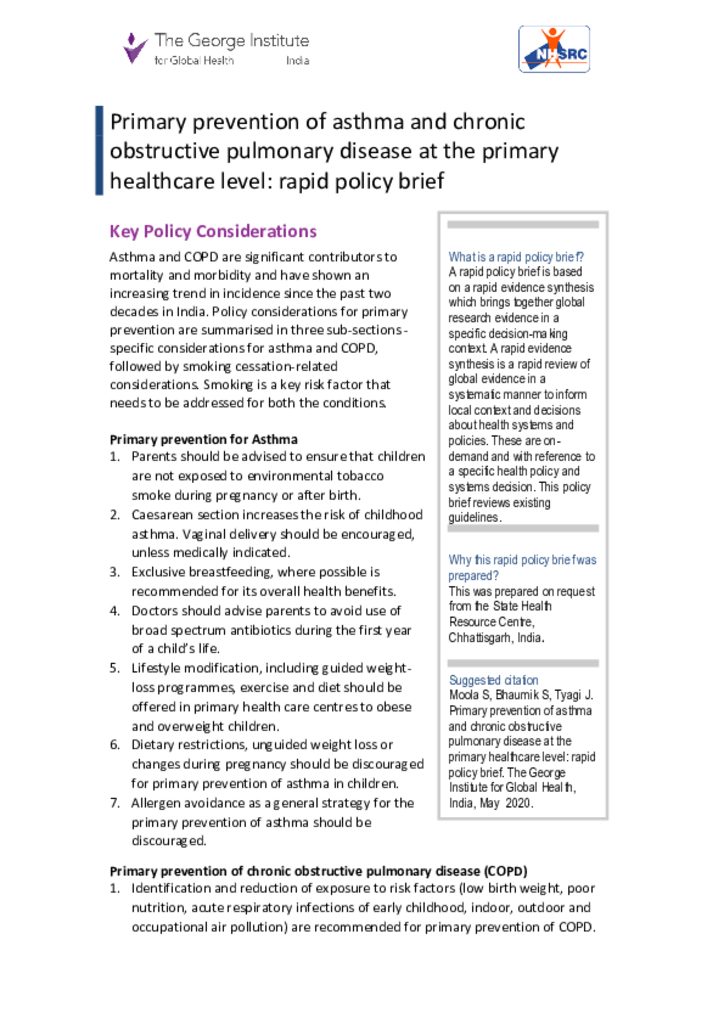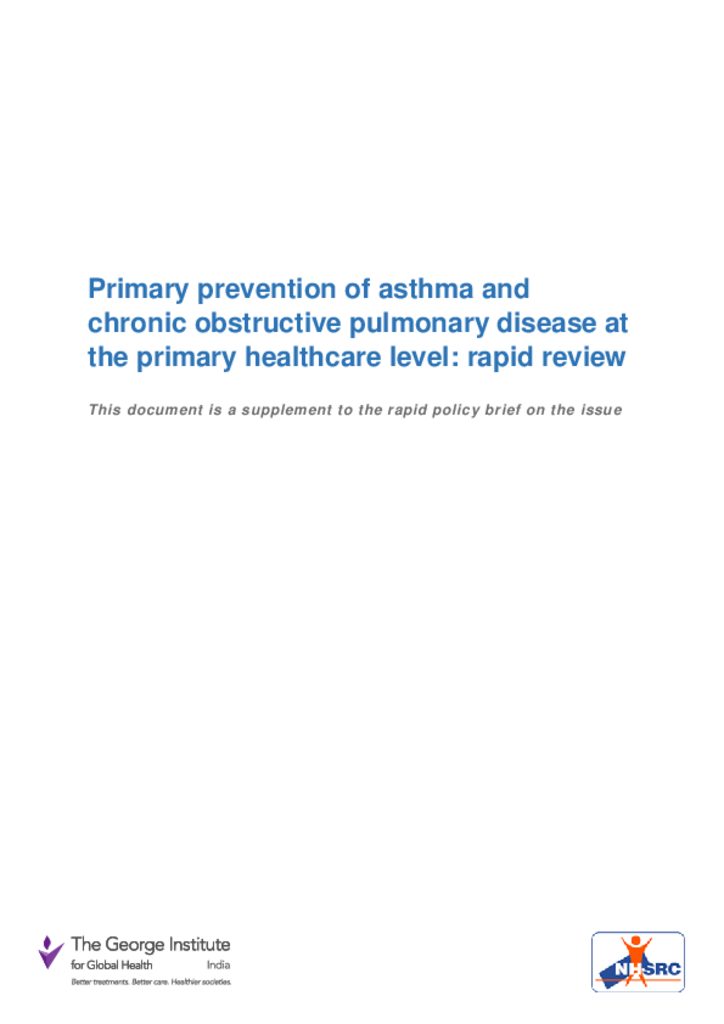
Primary prevention of asthma and chronic obstructive pulmonary disease at the primary healthcare level: rapid policy brief
Asthma and chronic obstructive pulmonary disease (COPD) are leading causes of mortality and morbidity in India. They have shown an increasing trend in their incidence in the past two decades. The State Health Resource Centre (SHRC), Chhattisgarh identified that there is a high burden of these two health conditions in the State, particularly in areas with high levels of industrial pollution. The Centre requested our RES team to review the existing evidence on prevention of asthma and COPD from a Low-and-Middle Income Countries (LMIC) perspective.
The rapid review thus conducted provided the SHRC with a summary of evidence-based policy considerations to enable decision makers in better managing and preventing asthma and COPD at the primary healthcare level in Chhattisgarh. The key policy considerations presented are:
Primary prevention for Asthma:
- Parents should be advised to ensure that children are not exposed to environmental tobacco smoke during pregnancy or after birth.
- Caesarean section increases the risk of childhood asthma. Vaginal delivery should be encouraged, unless medically indicated.
- Exclusive breastfeeding, where possible is recommended for its overall health benefits.
- Doctors should advise parents to avoid use of broad-spectrum antibiotics during the first year of a child’s life.
- Lifestyle modification, including guided weight-loss programmes, exercise and diet should be offered in primary health care centres to obese and overweight children.
- Dietary restrictions, unguided weight loss or changes during pregnancy should be discouraged for primary prevention of asthma in children.
- Allergen avoidance as a general strategy for the primary prevention of asthma should be discouraged.
Primary prevention of chronic obstructive pulmonary disease (COPD)
- Identification and reduction of exposure to risk factors (low birth weight, poor nutrition, acute respiratory infections of early childhood, indoor, outdoor and occupational air pollution) are recommended for primary prevention of COPD.
- At-risk persons such as pregnant women should avoid exposure to occupational and environmental pollution, including passive tobacco smoke exposure.
- Community awareness and multi-sectoral co-ordination are required to prevent indoor air pollution (usually from wood and coal for cooking), which is a key risk factor for COPD. Provisions of the Ujjwala Yojana should be used to provide and encourage LPG connections. Additional provisions beyond the free cylinders limit should be considered by the state.
- Employers should relocate people who are at high-risk for COPD from areas with occupational dust or high air pollution. If this is not possible, employers need to adopt appropriate workplace dust-mitigation measures and/or provide government approved masks that provide adequate respiratory protection.
- People should be advised on maintaining healthy lifestyle (including healthy diet and nutritional habits), and regular physical activity (for at least for 30 minutes a day).
The full policy brief and technical supplement document are available below:
Download policy brief (PDF 201 KB)
Download supplement document (PDF 323 KB)




